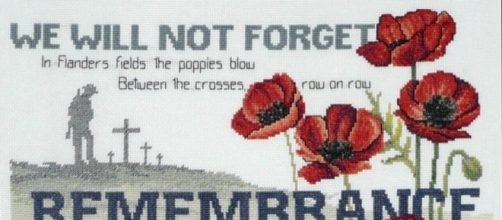When I was at school we went on a trip to Belgium where we got to see some of the sites that were the backdrop of the First World War. One of the first things we saw was the Yorkshire trench and dugout. At this place in 1997, numerous vestiges of the war were found. Amongst other things, 165 bodies were recovered. Because of that, a memorial site was created in the Flanders Field Museum.
Museum gives insight into war
This museum also gives more of an insight into what it was like in war with original films of the completely destroyed cities and the battlefields around it.
This museum also offered us a chance to hear first-hand accounts of the men's experiences in the war. Something that really shocked me was just how young some of the men were that went out to fight - how in some instances they might have been too young to fight and yet they still went to war. We also visited No Mans Land where we were able to see where the two sides were fighting, but could only imagine what it could have been like to actually be there in those conditions.
The German cemeteries
Also on our trip, we saw the German cemeteries and what struck me when I saw them was how different they looked, how the graves of the British and Americans were sandstone white and they had a lot of crosses.
Whereas the German graves were all black. When I went to the Flanders Field Museum I had a booklet from there that has within it eye-witness accounts of people living through war. It also has within it poems about war. This one links the national emblem of the Poppy we use today for remembrance, as well as giving insights into experiences during war.
This can be found in the "Eye Witness accounts of the "Great War" from the Flanders Field Museum
"In Flanders Field
In Flanders Field the poppies blow
Between the crosses, row on row
That mark our place; and in the sky
The larks still bravely singing, fly
Scarce heard amid the guns below,
We are the Dead, Short days ago
We lived, felt down, saw sunset glow,
Loved and were loved, and now we lie
in Flanders Fields,
Take up our quarrel with the foe;
To you from failing hands we throw
The torch; be yours to hold it high
If ye break faith with us who die
We shall not sleep, though poppies grow"

